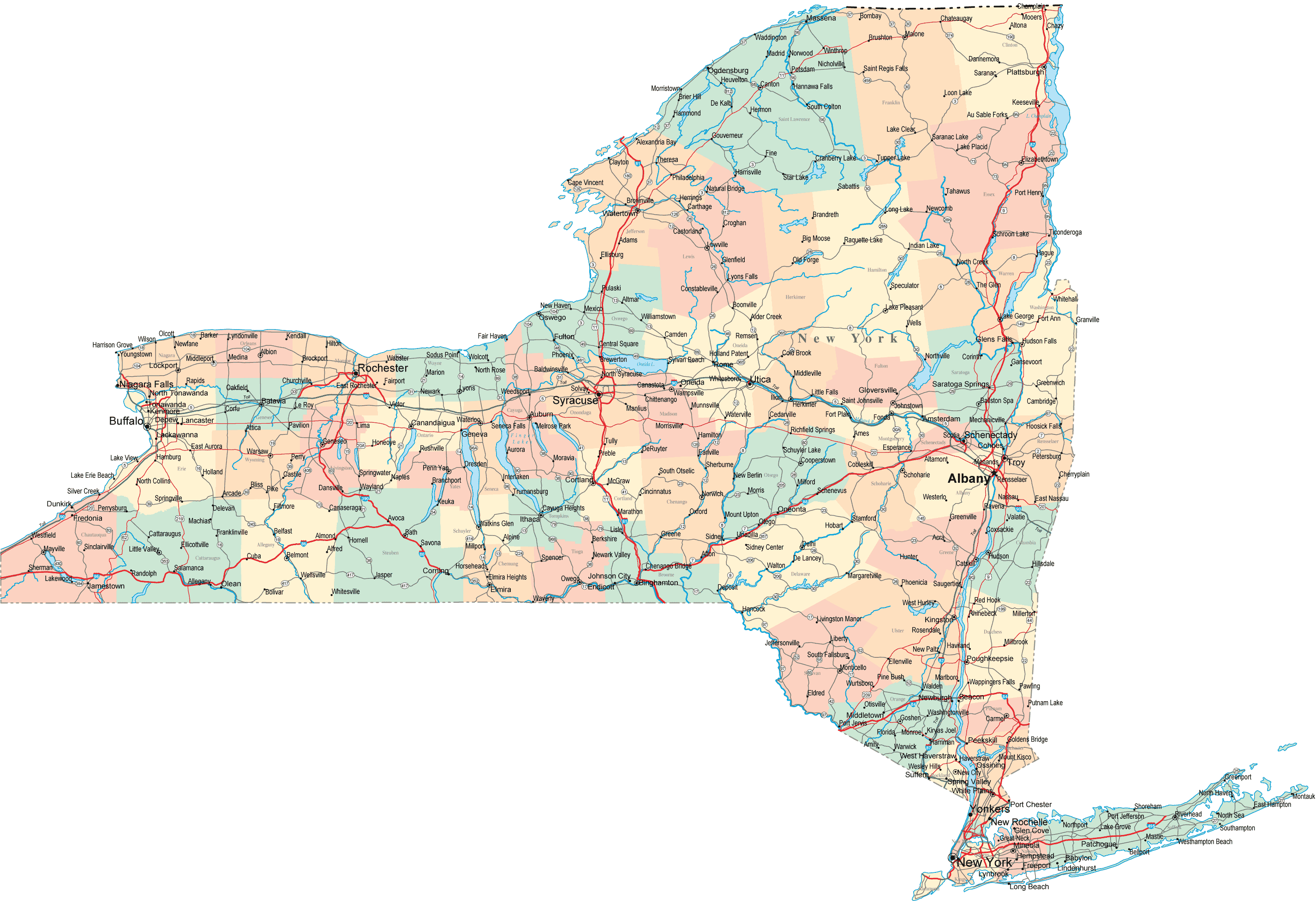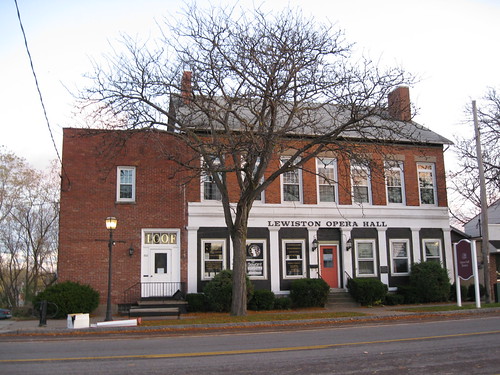Blue Highways: Savannah, New York
Unfolding the Map
 We drive through Savannah and a few miles past, eventually coming upon some guys fixing a Trans-Am. What is it about guys and cars? I explore why I didn't catch the car bug in high school, and how sometimes I wish I would have. Get an oil change, then drive over to the map to find Savannah.
We drive through Savannah and a few miles past, eventually coming upon some guys fixing a Trans-Am. What is it about guys and cars? I explore why I didn't catch the car bug in high school, and how sometimes I wish I would have. Get an oil change, then drive over to the map to find Savannah.
Book Quote
"At Savannah, I found the unmarked road to Conquest (down the highway from Victory) easily enough, but staying on it was another matter...After some miles, I had no idea where I was. I called out to five fellows pouring something into the crankcase of a Trans-Am. These were the men who believe in the restorative power of STP as the Chinese believe in rhinoceros horn."
Blue Highways: Part 8, Chapter 5
 Savannah, New York. Photo at the Wayne County Democratic Committee website. Click on photo to go to host site.
Savannah, New York. Photo at the Wayne County Democratic Committee website. Click on photo to go to host site.
Savannah, New York
In my hometown, there were always people my age and older when I was in high school that always worked on cars. I was not one of them.
In fact, it is still of considerable consternation to me that I did not learn any practical skills in carpentry, plumbing or in the electrical or mechanical arts. I think to myself now how handy those skills would be and in some senses, I feel robbed that I didn't get any of this type of training.
My classmates in high school got interested in those types of skills because their fathers knew how to do them, and taught them. They might spend a weekend with their father changing the oil or putting in a rebuilt carburetor in the family car or on their dad's truck. When they got to the age where they could drive, they'd buy an old car and spend hours getting it into shape. They'd help their fathers on building projects around the house, or replace some pipe underneath the house.
My dad didn't know how to repair cars. He had some carpentry skills but was too impatient to teach me. He'd tell me to go do something else until, it just became a matter of course for me to do something else rather than help him. He thought he had some plumbing skills, but he really didn't have much. And he didn't know anything about electrical systems. The one skill he taught me the most? Gardening.
Today, I know people who can do basic things such as change their own oil, saving them a lot of money over the long haul at the service shop. I know people who have skills in carpentry and use those skills to do everything from make minor repairs to build kitchens to build room additions to even build entire houses. I know some people who know enough about electricity that they can make repairs to wall outlets and circuit breakers. I know some people who can fix a drain or get under a house and make repairs to their pipes.
I can't do any of these things, and I wish I could. When my father would do these things, I remember the camaraderie as the neighbors would come over and check out what we were doing, and sometimes get involved and help out. Mr. Sindel, Mr. Moser, and a number of other people helped my dad build our deck, dig our well, and build our room addition. During this time they talked about things that happened in the neighborhood, gossiped and shared stories and jokes.
I observed the same phenomenon with people who worked on cars. My friends who worked on their own Trans-Ams, Camaros, Corvettes or even less sporty cars such as El Caminos and F-150 pickups always had someone helping them do some sort of repair. They'd talk and argue about what needed to be done and get closer to each other as they shared tasks and shared their lives. If one had a problem with his car, the other would come help and vice-versa as the situation required. It's not as if I didn't have friends, as my previous post made clear. However, I just didn't have avenues for a project or hobby, such as fixing cars, that might have given me more society. I didn't even have a car until I was 18, and then I had an accident with my mother's car, a Capri, and had to give up mine to her (which turned out to be a terrible car anyway).
I didn't have any of that, and didn't really find that kind of camaraderie until I left my town, graduated from college and started volunteering in the inner-city, which gave me a community of like-thinking and acting people. After that, my communities tended to be on the highbrow side, centering around education or social justice. There was nothing wrong with my communities, but discussions tended to be academic or about what was wrong with the world. Sometimes, however, one finds oneself wanting connection around less complex issues, where the metaphors of our existence in the universe can be embodied in a busted piston, or in an improperly hung door, or in the electrical mysteries behind a wall.
As I write this post, my neighbors across my street have about four or five vehicles parked in their front yard - projects in various states of completion. I remember in my hometown similar places, with vehicles and shells of vehicles sitting in people's yards. Occasionally you might even see a dismantled semi or bus rusting away in the yard. I remember people talking about making visits to junkyards to see if they could find a working part that they needed for their engine. And even today, I think to myself how valuable it might be to take a course on basic car repair because, I've learned, there are a lot of people like me. I used to think that cars were a part of the male genetic makeup, and that somehow I missed out on that gene. Of course, that's not true. There are women who spend a lot of time under the hood, and there are men like me who barely know how to find a dipstick, or change a battery.
I realize now that I wasn't necessarily lacking something. I was just never given the opportunity to find out if I might like using my hands mechanically, or in carpentry or some other skill. And while I can't complain about my life, I do feel that I missed out on an important opportunity. In another life, perhaps I might have been bent over a Trans-Am with a couple of other guys, just like LHM happened upon near Savannah, New York, trying to decipher the mystery of life, death and love in the intricacies of a transmission.
Musical Interlude
I found this song, Pretty Good at Drinkin' Beer by Billy Currington, for this post. I also think I found my new life's ambition. Just kidding. I relate to most of the song - the singer tells about how he's not very good at the usual activities that men do, including fixing cars, but he is "pretty good at drinkin' beer." I actually am pretty good at it too, especially a good hoppy IPA.
And here's Queen with an anthem called I'm in Love with My Car.
If you want to know more about Savannah
Town of Savannah
Wayne County Historian: Savannah
Wikipedia: Savannah
Next up: Conquest and Cato, New York




 Monday, May 21, 2012 at 2:15PM
Monday, May 21, 2012 at 2:15PM







